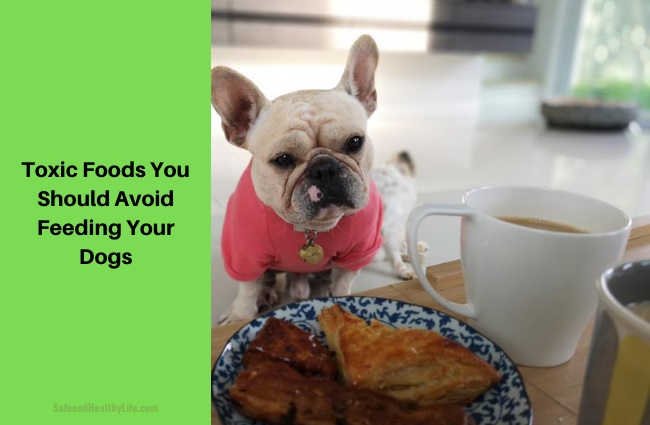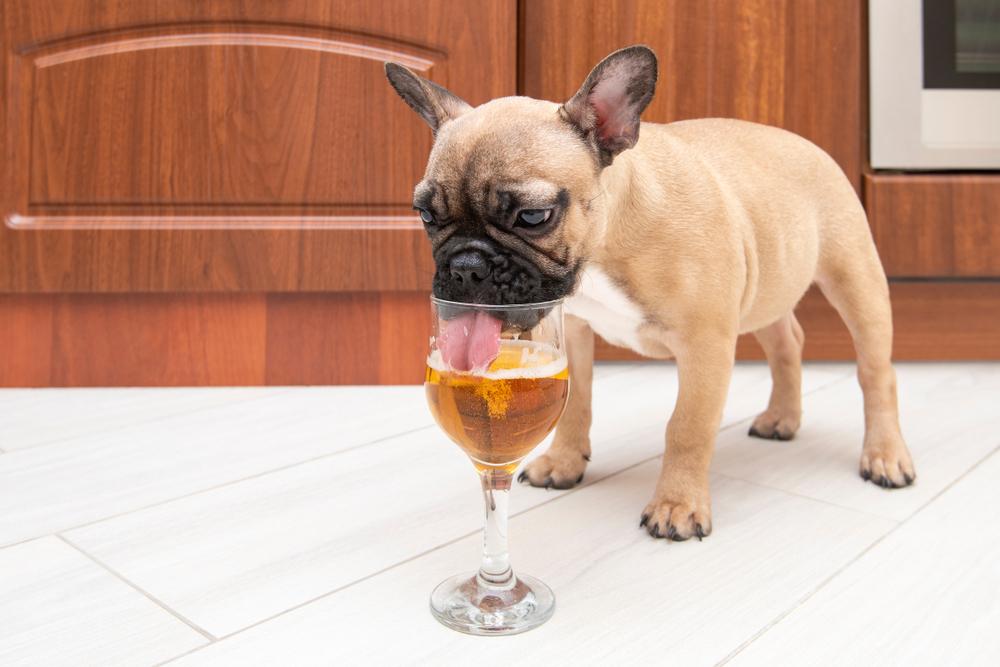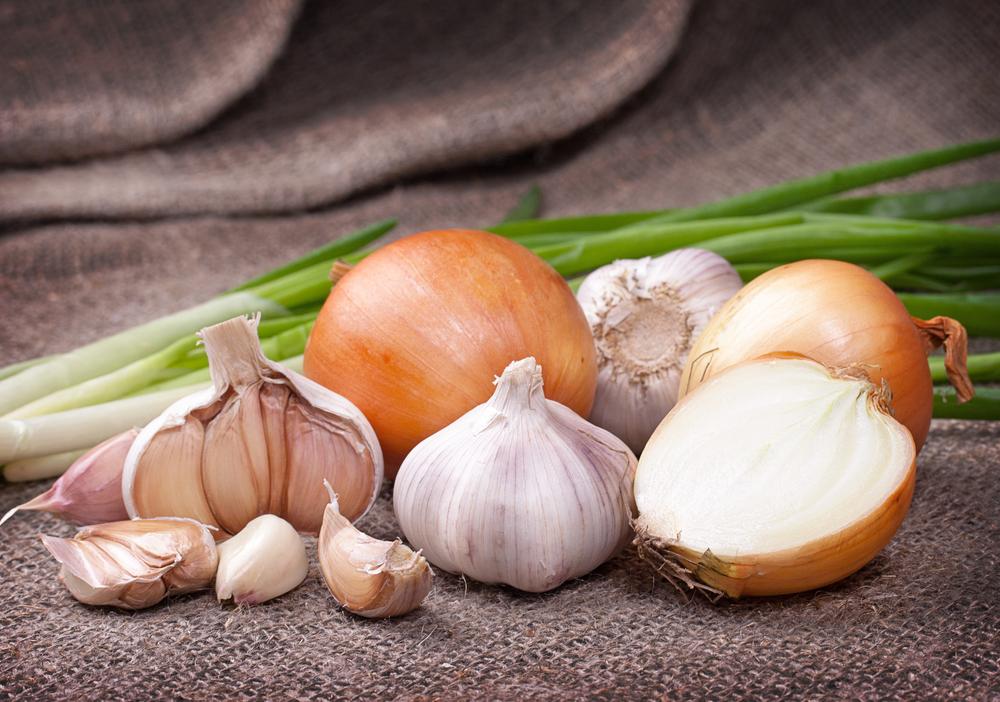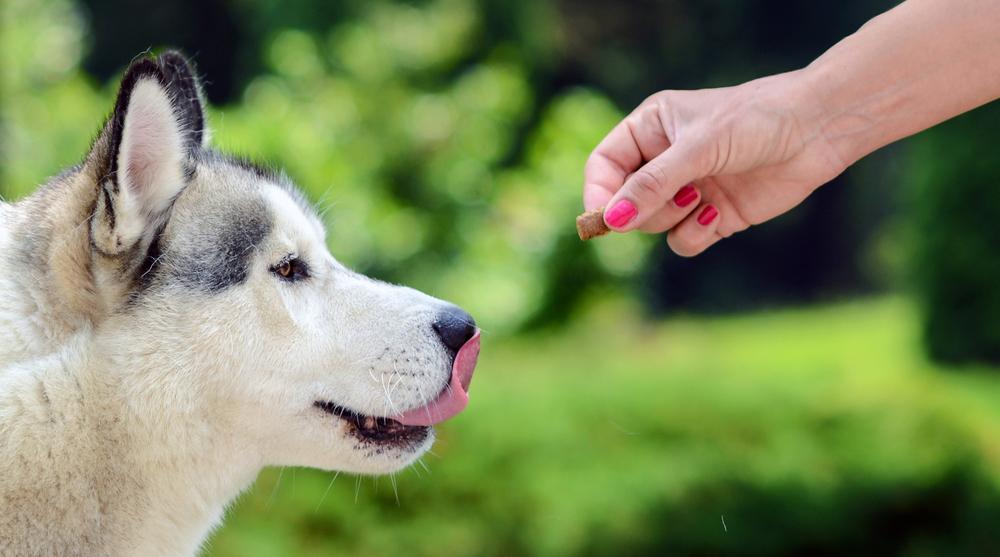
Dogs will eat anything; even new dog parents know this. But that doesn’t mean they should. As a dog parent, knowing what foods are poisonous to dogs is a huge responsibility to keep your pet safe.
As much as we love to share our plate of food with our canine buddies when they look at us with their beseeching eyes, it is not always the best thing for your dog.
Some food items that may seem perfectly safe and healthy can end up causing more harm than good to your dog’s physical wellbeing and health.
This handy guide to foods that should be entirely skipped from your dog’s diet will save you a trip to the vet and keep your furry friend safe!
There are numerous food items that are detrimental to your dog’s health and can lead to severe implications.
Let’s talk about the top 10 toxic foods for dogs that must be kept far from your pet.
1. Food With Xylitol
If we have to talk about what foods can kill dogs, xylitol will top the list. It is a substitute for sugar that is primarily used in gums, candies, baked goods, toothpaste, sugar-free chocolates, and more.
Although safe for humans, it can be deadly for dogs as they can develop xylitol toxicosis after consuming any product containing xylitol. Xylitol can also lead to low blood sugar levels in dogs and may result in severe liver issues.
2. Raisins And Grapes
Why are grapes toxic to dogs?
Both grapes and raisins contain tartaric acid that can have unpleasant effects on the dog’s body and mind.
Sometimes, consuming even one piece of grape can lead to toxicity and kidney failure that can also turn fatal.
Other symptoms of consuming grapes include weakness, loss of appetite, excessive vomiting, and diarrhea.
3. Alcohol

Even the smallest amount of alcohol can be lethal for your furry buddies, leading to neuropathologic effects. Consuming alcohol may cause your dog to not be able to function properly.
Some side-effects of alcohol ingestion include persistent vomiting, compromised mobility, high body temperature, seizures, and tremors.
4. Caffeine
Caffeinated food products like tea bags or coffee beans can adversely affect your dog. Some dogs may even have a more sensitive reaction to caffeine than humans.
Restlessness, hyperthermia, and increased heart rate are some common symptoms that come with caffeine consumption.
| ALSO READ: Health Benefits of Dog Foods – Do I Need to Add Them to My Dog Diet? |
5. Chocolate

No matter how tempted you are to share a piece of your chocolate with your dog, don’t. It is widely known that chocolate can be very toxic to dogs.
Chocolates contain theobromine, and some contain caffeine too, which does not react well with a dog. Dogs cannot metabolize these chemicals and thus end up developing toxicity.
6. Fruit Pits
Fruit pits of any size, big or small, can be extremely dangerous if consumed by dogs. Broken pits that are ingested can lead to cyanide toxicity that can turn lethal.
And whole pits can block and damage the esophagus and cause obstruction in the stomach.
7. Macadamia Nuts
Macadamia nuts are another extremely harmful food item for dogs. Not just plain macadamia nuts, but other food products containing macadamia nuts, even in small amounts, can be deadly to your dogs. It can lead to depression, weakness, fever, vomiting, etc.
8. Garlic And Onion

Although garlic and onions can impart maximum flavor to your meals, they are quite harmful to your dog’s health.
Garlic and onion in any form, be it raw, cooked, powdered, or mixed, will elicit a negative response from your dog.
Onion toxicity is caused by N-propyl disulfide present in onions, which breaks down red blood cells in the dogs, and can lead to anemia.
9. Dairy Products
Giving large amounts of milk-rich products can lead to severe stomach issues in dogs. Many dogs are lactose-intolerant and can develop digestive problems if they consume dairy. The high-fat content of such dairy products can also be harmful to your pet in the long run.
10. Sodium-Dense Products
Snacks and food items with a high sodium content like chips, popcorn, pretzels, etc. may seem quite harmless but they can have a surprising side-effect on your dogs.
Such items can make your dogs extremely thirsty and, in some cases, lead to sodium toxicity.
In the event that your dog consumes any of these toxic products, make sure you know how to make a dog vomit correctly so that you can prevent any further harm. In worse cases, rush your dog to the vet immediately.
Why You Shouldn’t Feed Your Dog Human Food?

While feeding your dog regular human food from the dining table like meat, vegetables, and fruits can seem like no big deal, certain ingredients that go into preparing meals may not be necessarily suitable for your pet.
Food like salmon, sardines, blueberries, and chicken can be great for your dog and can offer some wonderful health benefits.
However, some other human foods like almonds, chocolate, cinnamon, and ice cream can be extremely detrimental to your pet’s health.
In terms of a cooked meal, as long as you have used dog-friendly ingredients while preparing the food with significantly fewer spices, you can feed your dog without any concern.
| ALSO READ: The Healthiest Dog Breeds |
With so many foods harmful to dogs, it becomes crucial that you, as a dog owner, remain alert about what you are feeding your dog to ensure its safety.
Keep your dog’s health and dietary and nutritional requirements your top priority so you can help prevent any disease or illness and your furry buddy can lead a long, happy life.
About The Author:
Stacey Smith is a freelance health writer. She is passionate to write about women’s health, dental health, diabetes, endocrinology, and nutrition and provides in-depth features on the latest in health news for medical clinics and health magazines.




